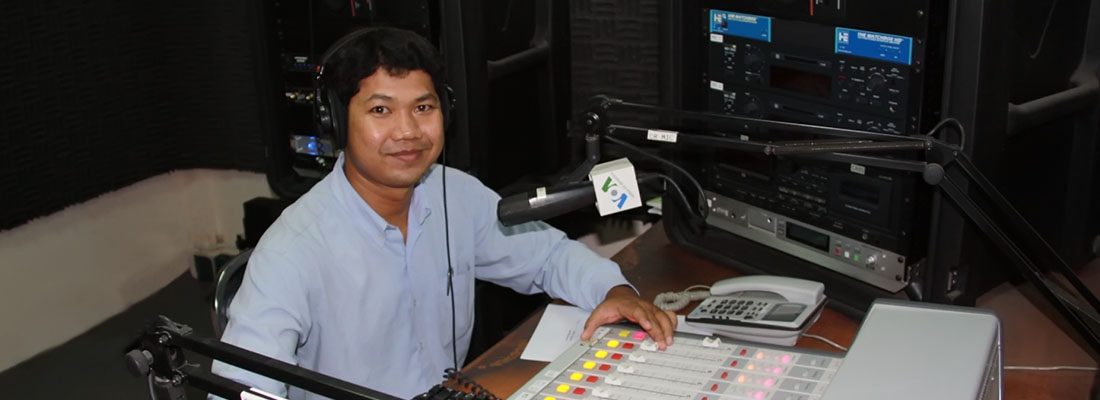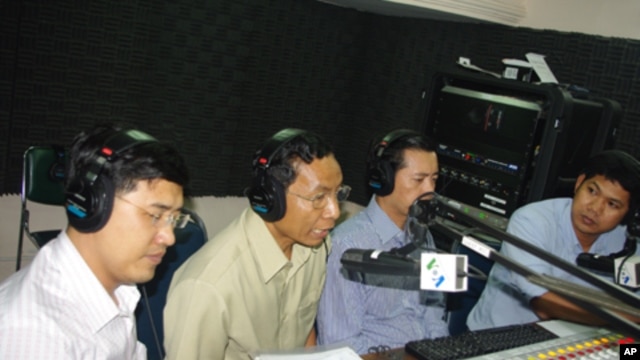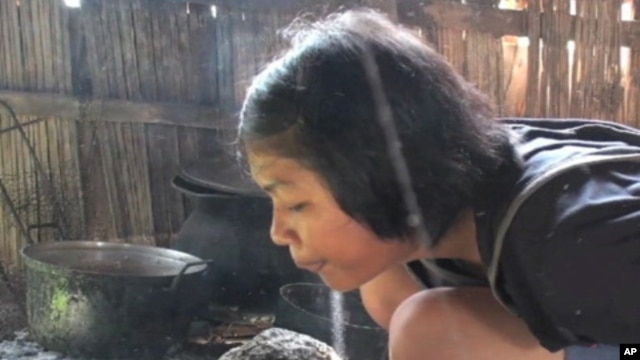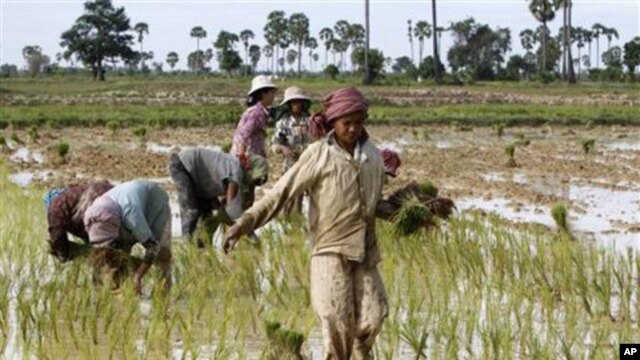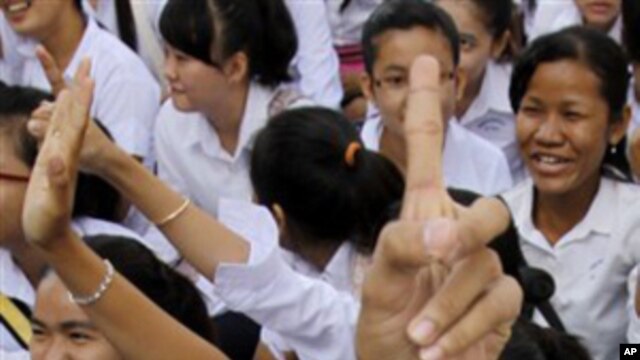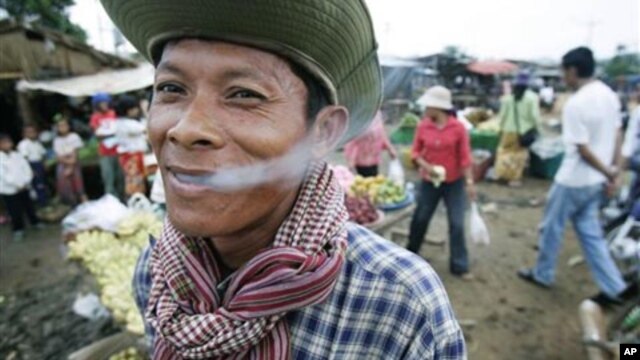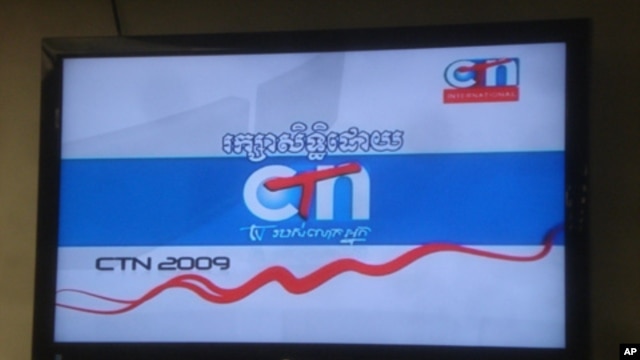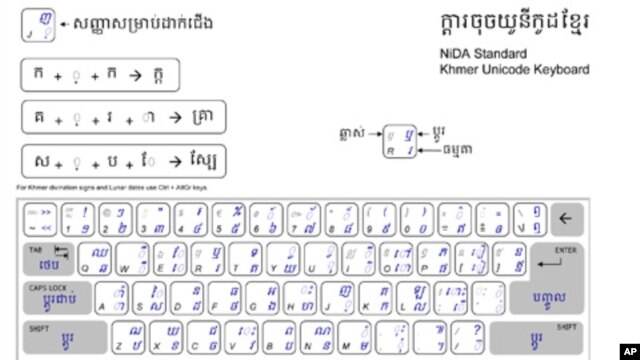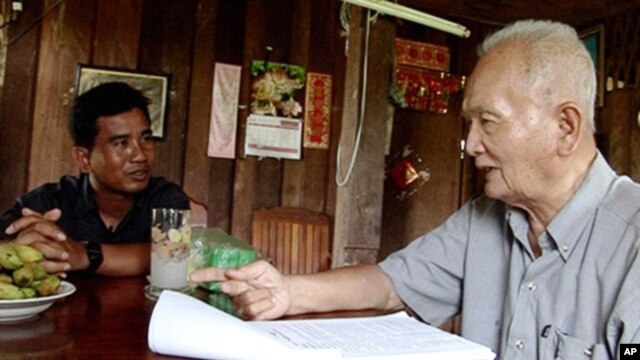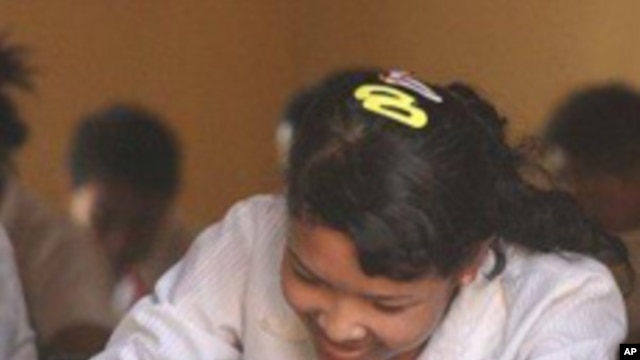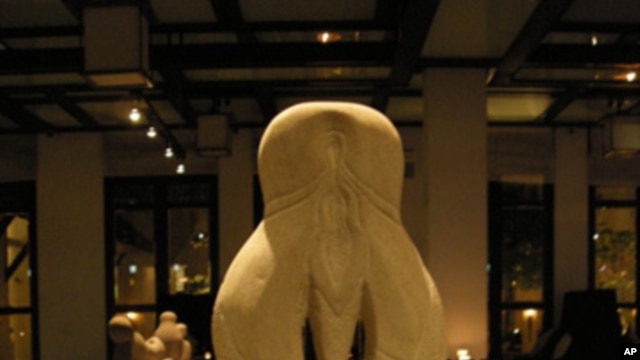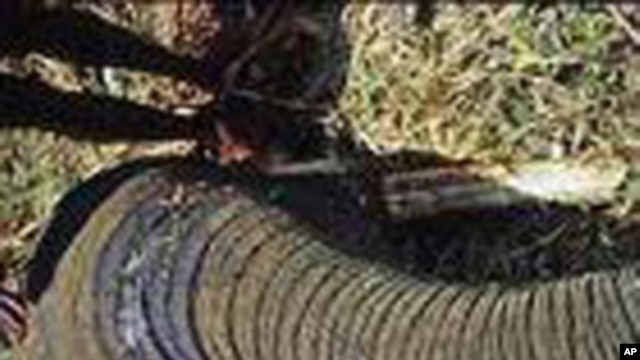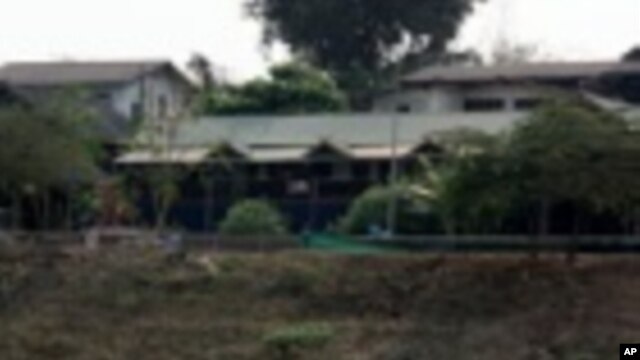Pich Samnang, VOA Khmer
Tuesday, 18 May 2010
On her head, Bun Net carried a tray full of colorful bracelets, necklaces and other souvenirs. She walked along Ochheuteal beach in the coastal province of Preah Sihanouk on a recent day, selling her wares to European sunbathers under the noon sun.
“I’m not selling well there days, because there are fewer foreign tourists now, the 15-year-old vendor said, as other vendors her age gathered around. “Some vendors have sold nothing at all from morning until now,” she said.
The number of foreign visitors to this town are in decline. In the first four months of 2010, visits were down about 2 percent compared to the same period last year. The provincial tourism department estimates about 59,815 visits so far this year. In all of 2009, more than 120,000 people visited this province of eight sand beaches, an international airport and a national park, Ream.
